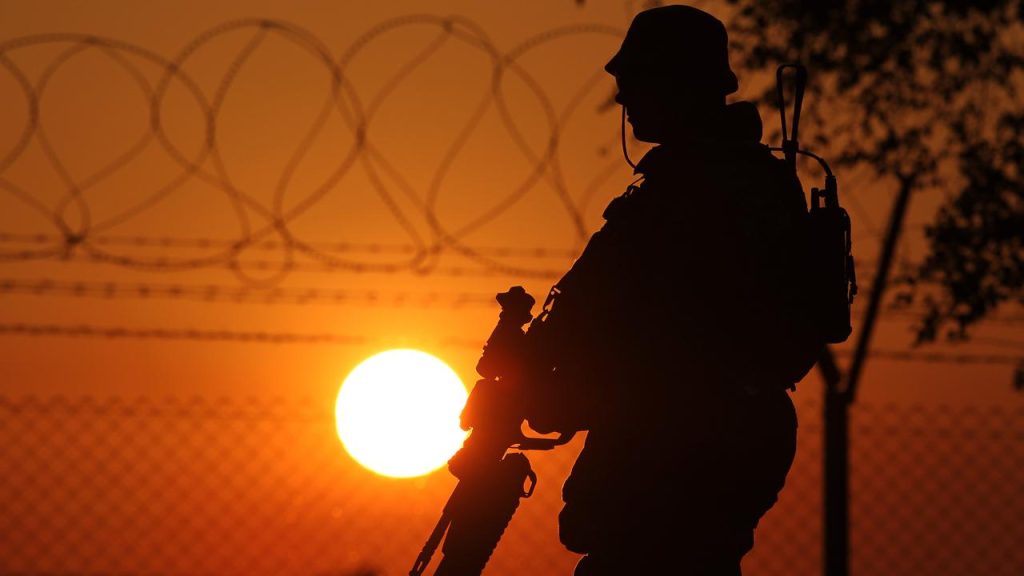
When Michael O’Neill, a Tasmanian who was helping to evacuate wounded Ukrainians from the frontlines, was killed by a Russian attack in May 2022, the Albanese government lamented his death but urged Australians to avoid war zones, where the risks are inevitably very high.
There was, in contrast, no mention of those risks in the government’s response to the death in Gaza of aid worker Zomi Frankcom: but it is a fact that more than 800 aid workers have been killed in the conflicts in Afghanistan, Iraq, Syria and Ukraine alone. And it is also a fact that many of those deaths are due to “friendly fire” – that is, to incorrect targeting decisions.
Nor is that surprising. Despite all the improvements in information-gathering, war zones are chaotic environments, in which decisions must be taken extremely rapidly under conditions of great uncertainty.
It is true that the “revolution in military affairs” brought about by the merger of new information acquisition technologies with massive data processing capabilities has had a marked effect; but the changes have hardly lifted the fog of war.
That they haven’t reflects those technologies’ limitations. As Brookings’ Michael O’Hanlon has shown, severe constraints persist on even the most advanced sensors’ ability to collect accurate information in crucial battlefield situations. Darkness, thick dust, dense buildings, deep and turbulent water are all very hard to penetrate; and, O’Hanlon argues, the laws of physics mean high visibility in those environments is and will likely remain unachievable.
Additionally and importantly, far greater advances have occurred in target acquisition – that is, in precisely locating potentially hostile objects – than in target identification. The difficulties that creates are compounded by the incentives adversaries have to operate under false flags or to provoke civilian casualties that will discredit their foe. As a result, human judgment continues to play a vital role in targeting, with all the risk that entails.
Those risks of targeting error were apparent during the Gulf War – the first truly “information age” conflict – in which friendly fire accounted for 24 per cent of Allied casualties, up from the historical benchmark of 10 to 12 per cent. While some of the increase reflected the coalition’s battlefield superiority (which reduced the losses the Iraqi forces could inflict), mistakes in assessing torrents of data also had a significant impact.
Shortly after that war’s end, the risks were highlighted once again by the death of 26 peacekeepers in northern Iraq on April 14, 1994, when US Air Force F-15 Eagle fighters shot down the two US Army UH-60 Black Hawk helicopters in which the peacekeepers were being transported.
The helicopters’ route and travel time through Kurdistan’s “no fly” zone had been fully communicated to the USAF Airborne Warning and Control System aircraft controlling the airspace. However, the lead pilot on the F-15s mistook the Black Hawks’ electronic traces for those of Soviet-made attack helicopters. Having sought and received approval from the AWACS, the F-15s launched missile strikes that instantly destroyed the Black Hawks, killing all aboard.
Both the F-15s and the helicopters were flying under the “positive” control of the world’s most sophisticated airborne control system. And all the commanding officers were highly experienced in joint combat operations. Yet in the eight minutes that went from radar detection to the helicopters’ destruction, a disastrous error was made.
Ultimately, the technical inquiry into the incident produced a 27-volume report, which was soon dwarfed by the evidence gathered in criminal investigations. But after hundreds of thousands of person-hours of hearings, no clear fault was found in any of the participants’ conduct. Rather, given the potential threats Iraqi helicopters posed, each of the participants had acted reasonably – a conclusion Harvard’s Scott Snook endorses in his book forensically re-examining the incident.
There is no reason to believe the likelihood of targeting mishaps has diminished significantly since then. Even for technologically sophisticated forces, friendly-fire casualty rates remain high, accounting for 15 to 20 per cent of Israeli losses in Gaza; and the error rates can be even higher when co-ordination is required between distinct organisations, as was apparent from the many friendly-fire incidents between coalition militaries, as well as between those militaries and NGOs, in Afghanistan and Iraq.
Of course, none of that reduces the need for care in targeting decisions, and especially those that may result in non-combatant casualties. However, as the US Department of Defence’s Law of War manual puts it, “the standard for what precautions must be taken is one of diligence, not an absolute requirement to do everything possible”.
Reflecting that standard, Germany’s Federal Court (later upheld by the European Court of Human Rights) concluded in 2010 that a targeting error that destroyed what was wrongly thought to be a Taliban convoy, causing 142 civilian deaths, did not amount to a war crime, as liability only arose when the decision-maker “refrained from acting reasonably and competently”.
Equally, the Australian Defence Force’s Defence Doctrine on the Law of Armed Conflict explicitly recognises, in discussing collateral damage, that because the “major focus” in Afghanistan was on eliminating the Taliban’s leadership, the ADF targeted “road convoys, with difficulties of identification and the consequent acceptance of non-combatant casualties as a necessary proportionate risk to achieve the military objective”.
Seen in the light of that admission, the government’s reaction to Frankcom’s death seems both intensely political – preparing the ground for this week’s announced willingness to recognise Palestinian statehood – and seriously ill-advised.
In effect, it drastically compromises the ADF’s position in future armed conflicts: no fighting force can hope to survive on the battlefield if it seeks to entirely avoid inadvertent casualties, or even makes that, rather than defeating the enemy, its uppermost priority.
At the same time, it slights the international law principle, which the ADF’s Inspector-General stresses in the Afghanistan inquiry’s report, that the right and obligation to investigate and prosecute war crimes must rest in the first instance on the nation accused. It is only when a country is unwilling or unable to discharge its duty that others should intervene.
It is, however, simply not true that Israel’s enforcement processes are deficient, justifying active Australian intervention and the appointment of an Australian special adviser. On the contrary, the Hoover Institution’s Peter Berkowitz concludes that “Israel’s procedures for investigating war crimes allegations compare favourably with, and in important respects are more exacting than, those of the United States, Canada, the United Kingdom, and Australia”.
The attempts by successive Australian governments to limit, if not stifle, any Australian war crimes investigation of the killing by Indonesian troops of Australian journalists in Balibo, and the extraordinary delays in the Afghanistan investigation, only underscore the cogency of Berkowitz’s assessment. If there has been military malfeasance, it is, judging by performance to date, more likely to be promptly and competently addressed in Israel than in Australia.
But this is not a rational debate, much less one in which facts are properly considered and carefully weighed. It is instead all stagecraft, no statecraft. Meanwhile, behind the smokescreen of cheap moralising, one Western government after the other is buckling to the Islamists’ noisy fellow-travellers, as if Islamist terrorism only threatened Israel. When reality bites back, the fire that hits us will be anything but friendly.
HENRY ERGAS

COLUMNIST
Henry Ergas AO is an economist who spent many years at the OECD in Paris before returning to Australia. He has taught at a number of universities, including Harvard’s Kennedy School of Government, the University of… Read more


